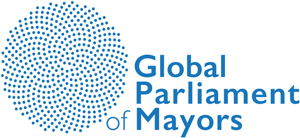31 October 2022 – By 2050, nearly 7 out of 10 people globally will live in cities and other urban settings. Although many will benefit from their urban status, rapid and unplanned urbanization can have negative social and environmental health impacts, particularly on the poorest and most vulnerable.
While urbanization, overall, is expected to reduce malaria transmission, unplanned urbanization will likely result in a malaria disease burden that is disproportionately high among the urban poor. Cities are uniquely positioned to understand local needs, convene coalitions, and respond rapidly to changing conditions to safeguard health. These changes require strong city leadership to implement multi-sectoral, health-relevant policies and public services. The response to malaria and other vector-borne diseases must be integrated into such policies and processes.
Commemorating World Cities Day on 31 October 2022, WHO and the United Nations Human Settlements Programme (UN-Habitat) are jointly organizing a webinar to launch the new “Global framework for the response to malaria in urban areas“. The framework provides guidance to city governments, health programmers, urban planners, and communities as they respond to the challenges of rapid urbanization in a targeted way.
Date: Monday 31 October, World Cities Day
Time: 15:00 – 16:30 CET / 9:00 – 10:30 EST
Registration: https://www.who.int/news-room/events/detail/2022/10/31/default-calendar/world-cities-day-responding-to-malaria-in-urban-areas
